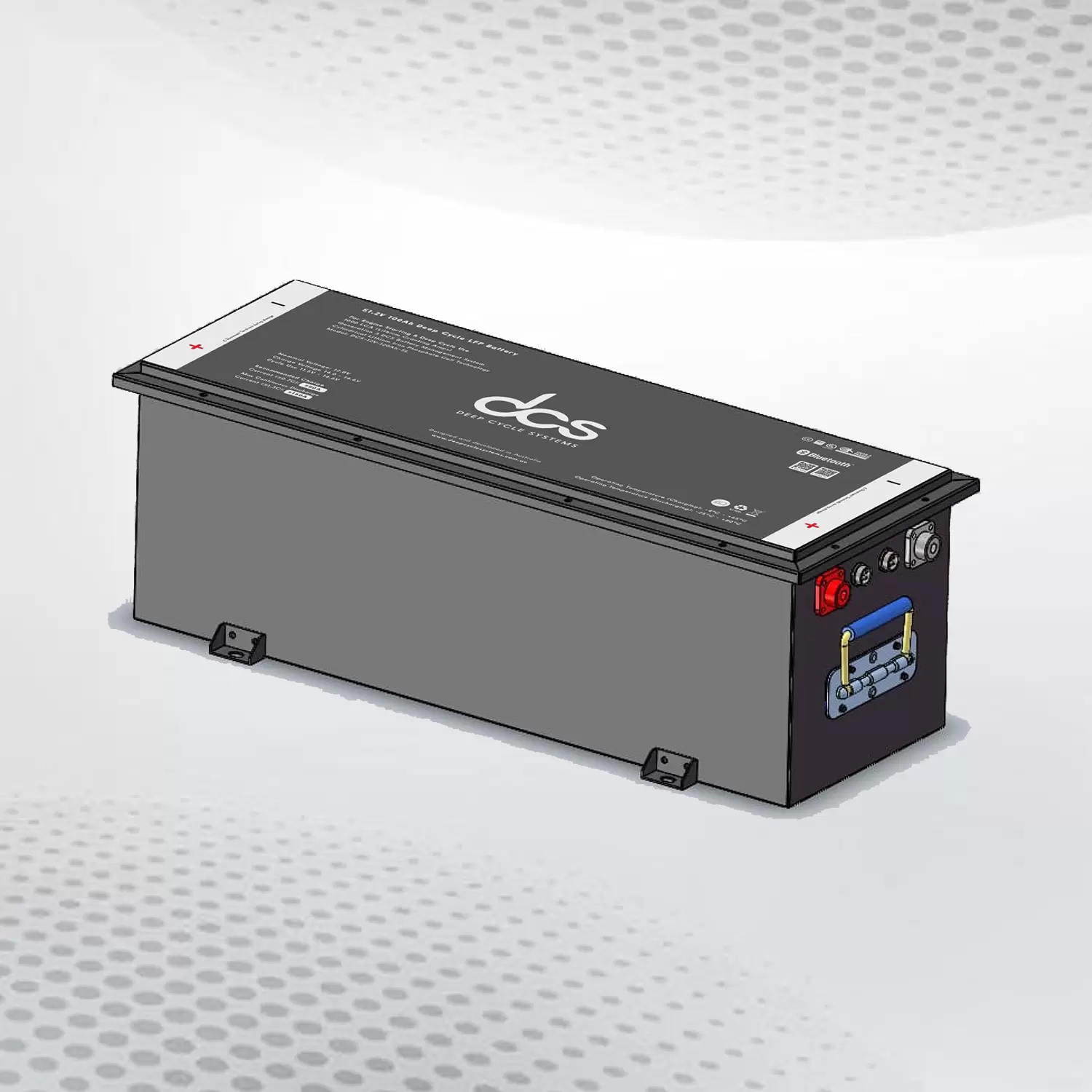Lithium Golf Cart Batteries vs. Lead-Acid: Best Choice

Lithium and lead-acid variants dominate the market for golf cart batteries. Each type brings distinct advantages and drawbacks that affect the performance, maintenance, and overall cost of operating a golf cart. Understanding the differences between these two options is crucial for making an informed decision. The following analysis explores eleven important aspects to consider, shedding light on the pros and cons of lithium golf cart batteries compared to their lead-acid counterparts. This evaluation aims to guide golf cart owners towards the most suitable battery choice.
Weight and Efficiency
Lithium golf-cart batteries are a game-changer in performance, as they are significantly lighter than traditional lead-acid batteries. This weight reduction directly impacts the golf cart's efficiency, requiring less energy to move the vehicle. With less weight to carry, the cart's motor experiences reduced strain, leading to smoother acceleration, less wear on components, and improved overall performance.
Not only does this result in a more comfortable ride, but it also enhances the cart’s ability to cover longer distances on a single charge. Therefore, lithium golf-cart batteries are ideal for those seeking better efficiency and longevity.
Lifespan and Longevity
Lithium batteries exhibit a considerably longer lifespan than lead-acid batteries, often lasting 5 to 10 years. This longevity stems from their ability to handle more charge cycles, typically 2,000 to 5,000 cycles. This surpasses the 500 to 1,000 cycles expected from lead-acid batteries, resulting in fewer replacements. Consequently, lithium batteries offer greater reliability and reduced long-term maintenance.
While lead-acid batteries may seem more economical initially, their shorter lifespan necessitates more frequent replacements, leading to higher overall costs. Therefore, the extended durability of lithium batteries makes them a more appealing choice for those prioritising long-term performance and cost savings.
Why Lithium Ion Golf Cart Batteries are revolutionising the Ride Experience
Lithium-ion golf cart batteries have become a game-changer in golf carts, offering numerous advantages over traditional lead-acid batteries. These batteries are lighter, more compact, and provide a longer lifespan, significantly enhancing the overall performance of the golf cart. Their efficient storage and discharging power ensures smoother, longer rides without constant recharging.
One of the standout features of lithium ion golf cart batteries is their quick charging capability. Unlike lead-acid batteries, which can take several hours to fully charge, lithium batteries can reach a full charge in a fraction of the time. This is ideal for golf courses and recreational areas where quick turnaround times are essential. The battery’s longer lifespan means fewer replacements, leading to long-term cost savings.
Lithium-ion golf cart batteries are a revolutionary advancement for golf carts, providing a more sustainable, efficient, and user-friendly alternative to traditional power sources. Their superior energy density, lightweight design, and faster charging capabilities make them a preferred choice for those seeking improved performance and reliability on the course.
Maintenance Requirements
When choosing between lithium and lead-acid batteries for your golf cart, it's essential to consider maintenance needs. These two options have distinct requirements that can affect your long-term ownership experience.
Lithium Batteries: Minimal Maintenance Needed
Lithium batteries are designed to require very little maintenance. They do not need to be topped up with water, and they do not experience corrosion like lead-acid batteries. However, regular checks on the charge levels and occasional cleaning of the terminals are typically all that is necessary.
Lead-Acid Batteries: Regular Maintenance Required
Lead-acid batteries require more frequent maintenance. Regularly checking and topping off the water levels is essential to prevent damage. The terminals must also be cleaned regularly to avoid corrosion, which can reduce the battery's lifespan.
Battery Inspection and Monitoring
Lithium batteries benefit from built-in monitoring systems that track their health. In contrast, lead-acid batteries need periodic inspections to ensure the fluid levels are correct and the battery is not showing signs of wear.
Environmental Factors Impacting Maintenance
Both types of batteries are affected by temperature extremes, but lead-acid batteries are more vulnerable to damage from overcharging or undercharging and require careful monitoring.
Longevity and Maintenance Costs
Lithium batteries have a longer lifespan and typically require less maintenance overall, reducing long-term costs. While lead-acid batteries are less expensive upfront, they tend to require more frequent maintenance and replacement.
Temperature Tolerance
Regarding temperature tolerance, lithium golf-cart batteries generally outperform lead-acid batteries. Lithium batteries are designed to operate efficiently in a wider range of temperatures, with many models functioning well in hot and cold environments. Lead-acid batteries, on the other hand, are more sensitive to temperature extremes, especially heat, which can significantly reduce their lifespan and performance.
In colder climates, lead-acid batteries may also struggle with slower charging times and decreased capacity. Therefore, lithium golf-cart batteries are often the better choice for long-term reliability for golfers seeking consistent performance in varying weather conditions.
Li Ion Golf Cart Battery: Why It's the Future of Golf Cart Power Solutions
When powering your golf cart, it is crucial to choose between lithium and lead-acid batteries. Traditional lead-acid batteries have been the go-to for years, offering an affordable initial cost. However, they come with significant downsides, such as shorter lifespans, longer recharge times, and the need for frequent maintenance. Additionally, they are heavier and less efficient, which can impact the overall performance of your golf cart.
In contrast, the li ion golf cart battery is becoming increasingly popular due to its advanced technology and numerous benefits. These batteries are lightweight and compact and provide longer driving ranges compared to their lead-acid counterparts. They also require less maintenance, as they don’t need to be watered or checked regularly. The efficiency of lithium batteries ensures quicker charging times, meaning less downtime and more time to enjoy your ride.
Moreover, lithium-ion batteries have a significantly longer lifespan, making them a more cost-effective option in the long run despite their higher initial investment. Their durability and high energy density make them the future of golf cart power solutions. Choosing a lithium-ion battery enhances your golf cart’s performance and contributes to a more sustainable and environmentally friendly ride.
Initial Cost Comparison between Lithium and Lead-Acid Batteries
The initial expenditure for lithium golf-cart batteries is notably higher than that for lead-acid batteries. This elevated upfront cost can be attributed to lithium batteries' advanced technology and materials. Despite the financial hurdle, the benefits of lithium batteries, such as their extended lifespan and minimal maintenance requirements, offset the initial investment over time.
On the other hand, lead-acid batteries, while more affordable at the point of purchase, entail ongoing costs due to their shorter lifespan and frequent need for maintenance. Consequently, the overall financial implications of each type of battery vary significantly, depending on both immediate budget considerations and long-term financial planning.
Performance in Hilly Terrain
When it comes to navigating hilly terrain, lithium golf-cart batteries offer superior performance compared to their lead-acid counterparts. Lithium batteries are lightweight and provide a consistent power output, allowing the golf cart to easily maintain higher speeds and tackle inclines. In contrast, lead-acid batteries tend to lose power more quickly, especially on steep hills and may require more frequent recharging.
With a longer lifespan and better efficiency, lithium batteries ensure your ride stays smooth and reliable even on challenging slopes. For those who frequently drive on hilly terrain, a lithium battery is often the better choice for optimal performance.
Conclusion
When choosing between lithium and lead-acid batteries for your golf cart, lithium batteries emerge as the superior option in many aspects. They offer a longer lifespan, faster charging time, and lighter weight, making them more efficient and cost-effective. Though they come at a higher initial cost, the durability and performance benefits make them an investment worth considering for avid golfers. However, lithium golf cart batteries may still be viable and affordable if you're on a tighter budget or using the cart infrequently. Ultimately, your decision should align with your usage frequency, budget, and long-term needs.
FAQ’s
What is the main difference between lithium and lead-acid golf cart batteries?
The key difference lies in their composition and performance. Lithium batteries are lighter, charge faster, and last significantly longer than lead-acid batteries. They also offer more consistent power, even as the battery drains, while lead-acid batteries lose efficiency as they discharge.
How long do lithium golf cart batteries last compared to lead-acid batteries?
Lithium golf cart batteries can last up to 5,000 charge cycles, while lead-acid batteries typically last between 500 and 1,000 cycles. This makes lithium more durable, reducing the need for frequent replacements.
Are lithium batteries worth the higher upfront cost?
Despite their higher initial cost, lithium batteries provide greater long-term savings due to their longer lifespan, faster charging times, and fewer replacements needed. They are advantageous for frequent users who want consistent performance over many years.
Can I replace my lead-acid battery with a lithium battery?
Yes, you can replace a lead-acid battery with a lithium battery, but ensuring your golf cart's charging system is compatible with lithium technology is important. Consult a professional if needed to ensure the switch is smooth and safe.
Do lithium golf-cart batteries require maintenance?
Lithium batteries require less maintenance than lead-acid batteries. There’s no need to check water levels; they don't suffer from corrosion issues. However, regular inspections are still recommended to ensure the battery stays in optimal condition.
|
Related Business Listings |





